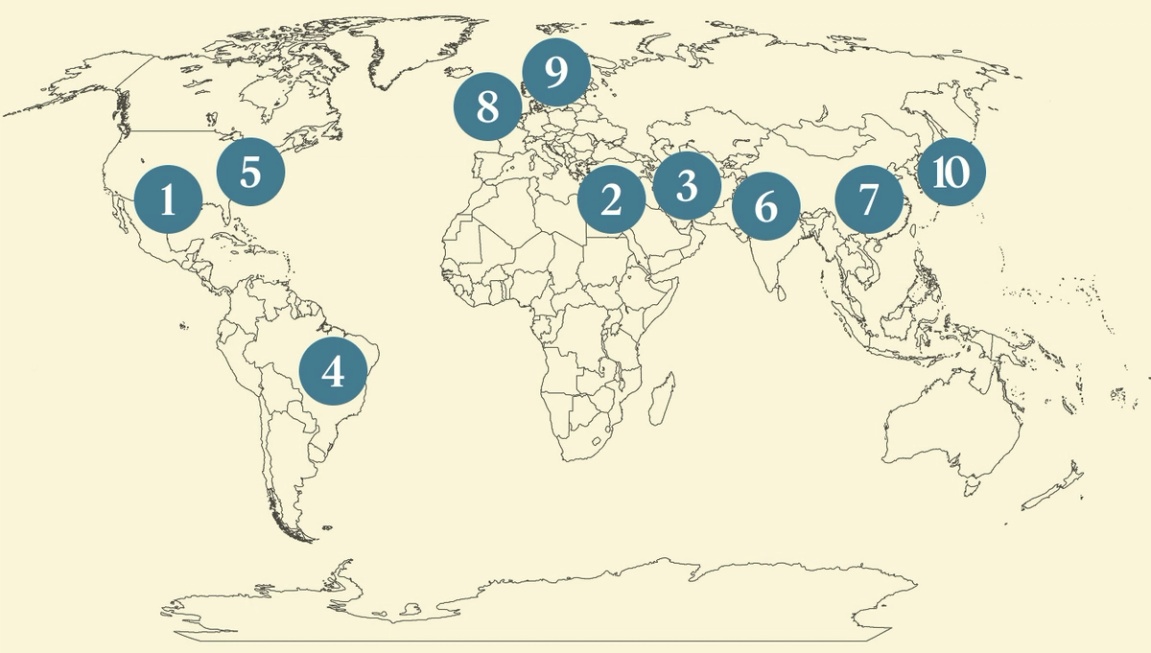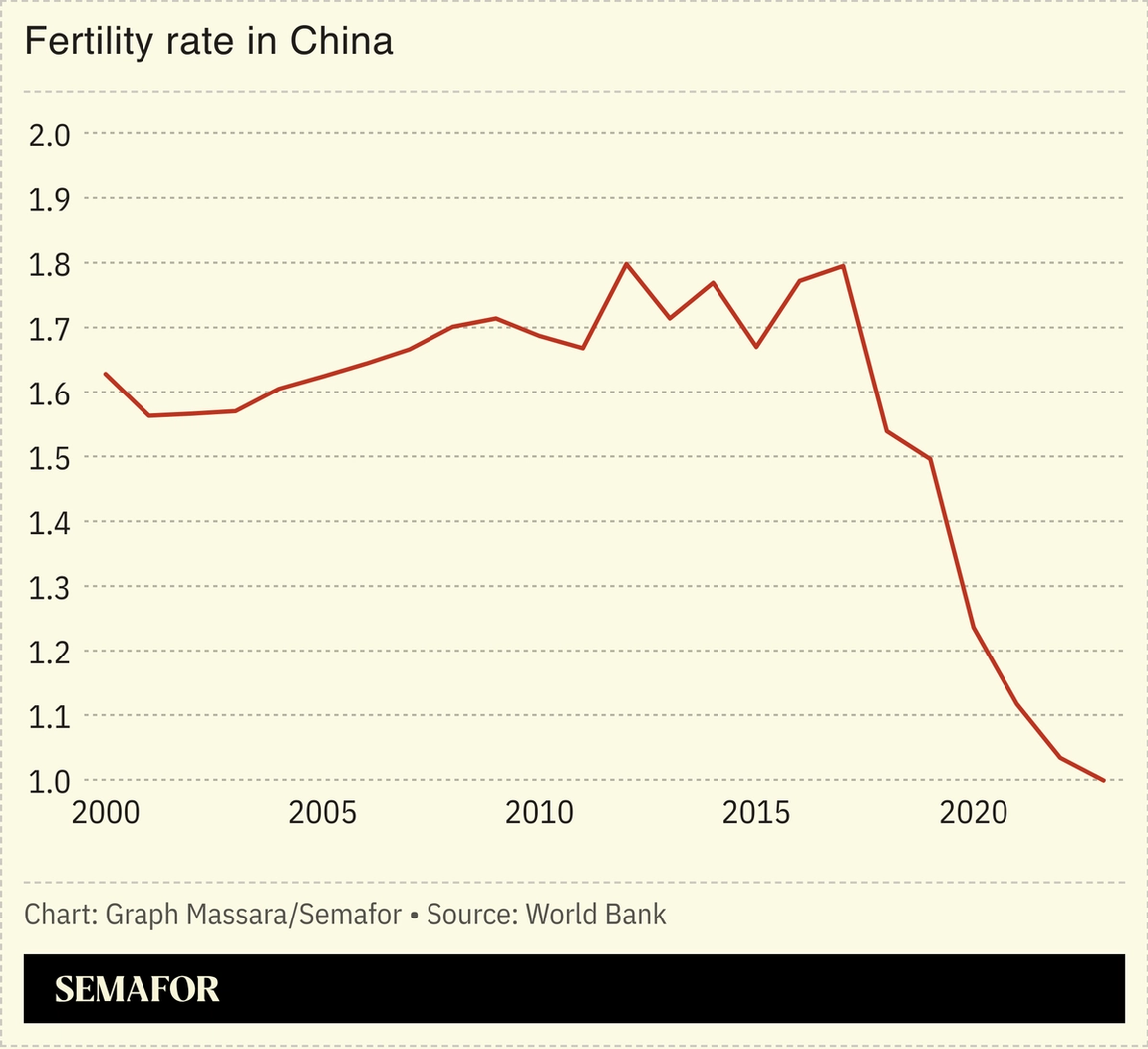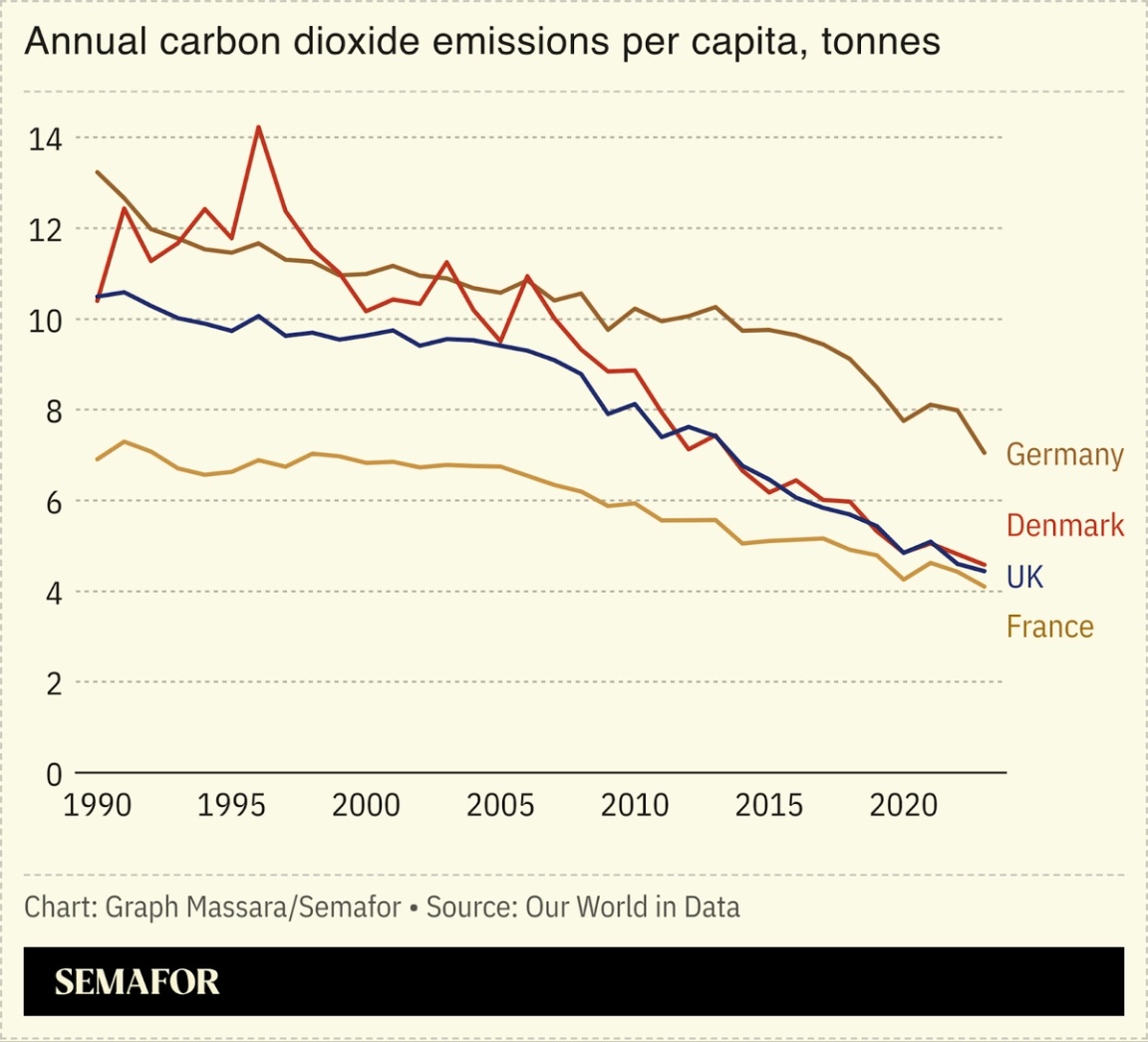| | Floods in Texas kill dozens, Benjamin Netanyahu heads to Washington, and Japanese authorities dismis͏ ͏ ͏ ͏ ͏ ͏ |
| |  | Flagship |  |
| |
|
The World Today |  - Floods devastate Texas
- Gaza talks move forward
- Iran supreme leader emerges
- Growing divisions in BRICS
- Musk’s new political party
- The Dalai Lama at 90
- China incentivizes having kids
- UK carbon emissions down
- Old brains, new neurons
- Manga doomsday hype
 Emily Sargent’s newly resurfaced watercolors go on display in New York. |
|
 US Coast Guard/Handout via Reuters US Coast Guard/Handout via ReutersFlash floods in the state of Texas killed at least 79 people and left many more missing, officials said Sunday. Four months’ worth of rain — 1.8 trillion gallons — fell in just hours on Friday. Authorities are unsure how many people remain unaccounted for, but they include 10 children who were at a summer camp. The tragedy has brought scrutiny on the National Weather Service: The agency’s central Texas offices have several critical vacancies, and while some openings may predate the current administration, the number has roughly doubled since US President Donald Trump returned to office, The New York Times reported. That means there are fewer people able to coordinate with local authorities, possibly hampering the emergency response, experts said. |
|
Gaza truce talks gain momentum |
 Jack Guez/Pool via Reuters Jack Guez/Pool via ReutersIsrael sent negotiators to Qatar on Sunday in a bid to broker a Gaza ceasefire with Hamas, under renewed pressure from US President Donald Trump to reach a deal. Hamas has signaled a “positive response” to a US-backed proposal for a 60-day truce, but still asked for changes that Israel opposes: “We’ve been here before,” one Israel policy expert said. Israeli Prime Minister Benjamin Netanyahu, who is set to meet with Trump in Washington on Monday, is being pulled between the US and his allies on the far right who oppose a ceasefire. But he will find it “more difficult to evade an agreement” given Trump’s renewed Middle East diplomatic push following US strikes on Iran, Haaretz’s Amos Harel wrote. |
|
Iran’s leader reappears in public |
 Office of the Iranian Supreme Leader/WANA/Handout via Reuters Office of the Iranian Supreme Leader/WANA/Handout via ReutersIran’s Supreme Leader Ayatollah Ali Khamenei appeared in public for the first time Saturday after spending nearly a month in hiding during the country’s brief conflict with Israel. Khamenei’s emergence at a religious gathering in Tehran seemed intended as a projection of stability and strength after weeks of assassination threats and speculation about his health. Iran’s leaders have sought to tap into nationalist sentiment in the wake of the conflict with Israel and the US strikes on the country’s nuclear facilities; Khamenei requested the event’s speaker recite a song with “deep nationalist themes,” the Financial Times reported. Analysts are closely watching Khamenei for signs about the future of Tehran’s nuclear ambitions, which some experts believe could accelerate. |
|
Growing pains evident at BRICS summit |
 Pilar Olivares/Reuters Pilar Olivares/ReutersThis weekend’s BRICS summit in Brazil put a spotlight on the growing internal divisions within the bloc of developing nations. About half of the group’s leaders, including China’s Xi Jinping and Russia’s Vladimir Putin, didn’t attend the gathering. While BRICS has expanded from five members — Brazil, Russia, India, China, and South Africa — to 11 in the last two years, the additions have brought fresh points of contention, and perhaps diluted its clout. Delegates avoided any controversial subjects that might trigger Washington’s ire, analysts said: A joint declaration condemning tariffs refrained from naming US President Donald Trump, and mentioned Ukraine only once. It marked a contrast from last year’s gathering in Russia, where the Kremlin pushed for alternatives to US-dominated financial systems. |
|
Musk announces new political party |
 Tech billionaire and former White House adviser Elon Musk is pushing ahead with his plans to form a new political party, but myriad obstacles stand in his way. The world’s richest man said he would form the “America Party” after US President Donald Trump on Friday signed into law his signature tax and spending bill, which Musk described as an “abomination.” Most Americans believe the country needs a third major party, but Musk “has yet to outline a concrete plan forward,” and would have to navigate complex election laws and ballot access regulations, Politico wrote. Directly challenging Trump could also hurt Musk’s businesses, which rely on billions in government contracts and subsidies. |
|
 Anushree Fadnavis/Reuters Anushree Fadnavis/ReutersThe Dalai Lama’s 90th birthday celebrations on Sunday raised fraught questions surrounding his succession plans. The spiritual leader last week said only his inner circle has the authority to identify his reincarnation, a direct challenge to China: Beijing has said it must approve the next head of Tibetan Buddhism. The Dalai Lama, who lives in self-imposed exile in India, has suggested his reincarnation may be found outside of China, and some Tibetans worry Beijing will try to name a rival. Long perceived as a symbol of resistance against Chinese control of Tibet, the Dalai Lama finds himself increasingly “caught geopolitically” between New Delhi and Beijing, an expert told The Guardian. |
|
China offers cash to have kids |
 Chinese officials plan to offer annual cash payments to incentivize couples to have children. China’s population has been shrinking for years, with the number of births having halved in the last decade despite the abandonment of the one-child policy in 2015. Local governments have previously tried paying families to have more children, and now Beijing is joining the effort, offering 3,600 yuan (about $503) per child per year. But economic issues are only one of the reasons why births are falling worldwide, one researcher pointed out: Instead, governments should focus on making parenthood look fun and desirable enough to be worth the time and the money. |
|
UK halves carbon emissions |
 The UK has more than halved its carbon emissions compared to 1990, a significant step toward the country’s goal of achieving net zero by 2050. Much of the reduction can be attributed to Britain’s shift away from coal in favor of gas and renewables; changes like more people buying electric vehicles have helped, too. Other European nations have also made significant strides in curbing emissions — France is somewhat of an outlier because while it has reduced less compared to other countries, its emissions were relatively low already due to its nuclear sector — but the UK has moved fastest, and its economy may be nearing a “positive tipping point,” researchers noted. |
|
Adult brains show signs of neurogenesis |
Scientists have found new evidence that adult human brains can grow new neurons. As fetuses, our brains grow some 100 billion neurons, but that number declines as we age. “Neurogenesis” — growing new neurons — has been observed in other animals, but never in humans. Now, researchers used artificial intelligence to identify precursor cells known to create neurons in the brains of people as old as 78. The study’s sample size is small, and it’s clear that our cognitive abilities decline as we get older — on some measures, from around age 20 — but the research raises hopes of finding treatments for neurodegenerative conditions, including Alzheimer’s. |
|
Japan officials reject manga disaster hype |
 Issei Kato/Reuters Issei Kato/ReutersJapanese authorities urged worried residents and travelers not to believe a manga that predicts the country’s impending doom. The Future I Saw, first published in 1999 and re-released in 2021, depicts a massive earthquake and tsunami hitting Japan in July 2025. The manga’s first edition warned of a calamity in March 2011, when a large earthquake and nuclear disaster really did kill thousands. More seismic activity in Japan’s southwest in recent days has fueled a fresh round of apocalyptic rumors on social media, spooking some tourists: Travel from Hong Kong to Japan dipped 11% in May compared to last year. |
|
 July 6: - The US Conference Board releases its June employment index.
- The annual Running of the Bulls begins in Pamplona, Spain.
- Paris Haute Couture Week begins for the coming womenswear fall/winter season.
|
|
|